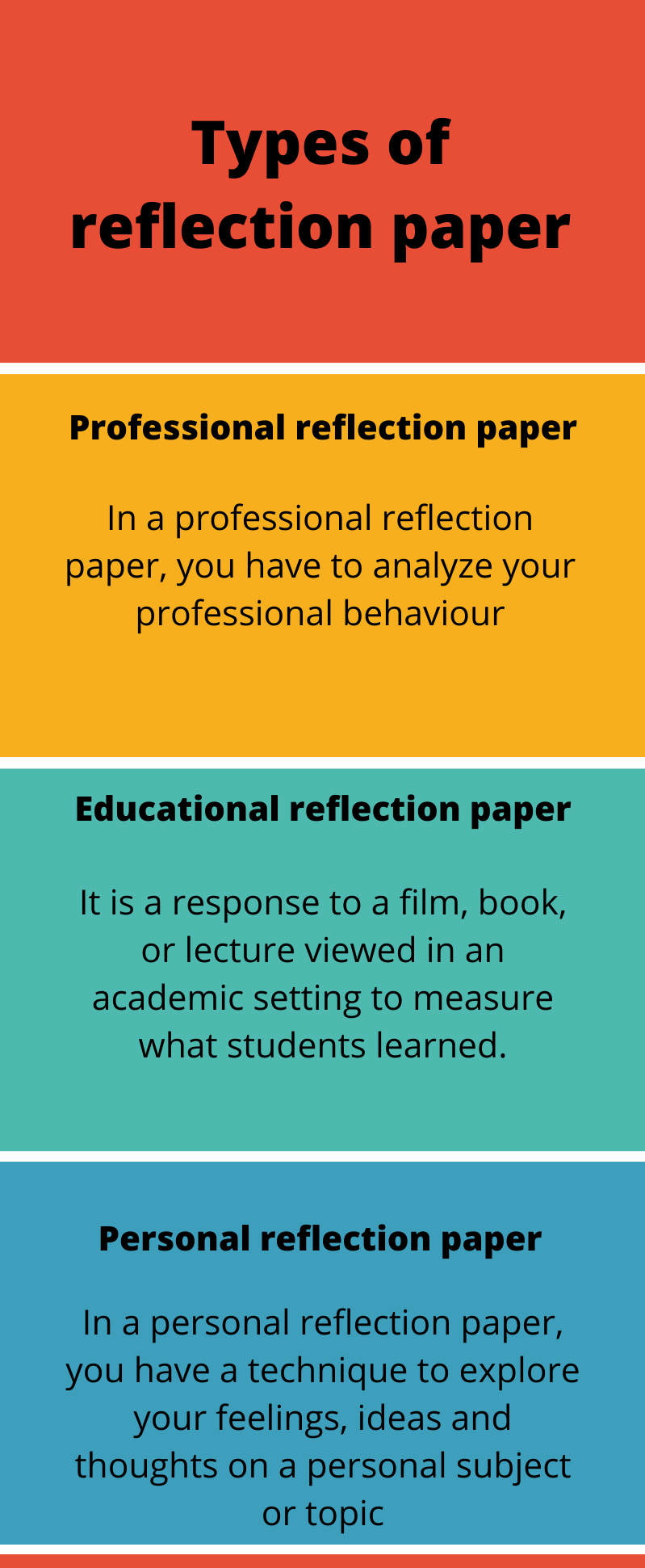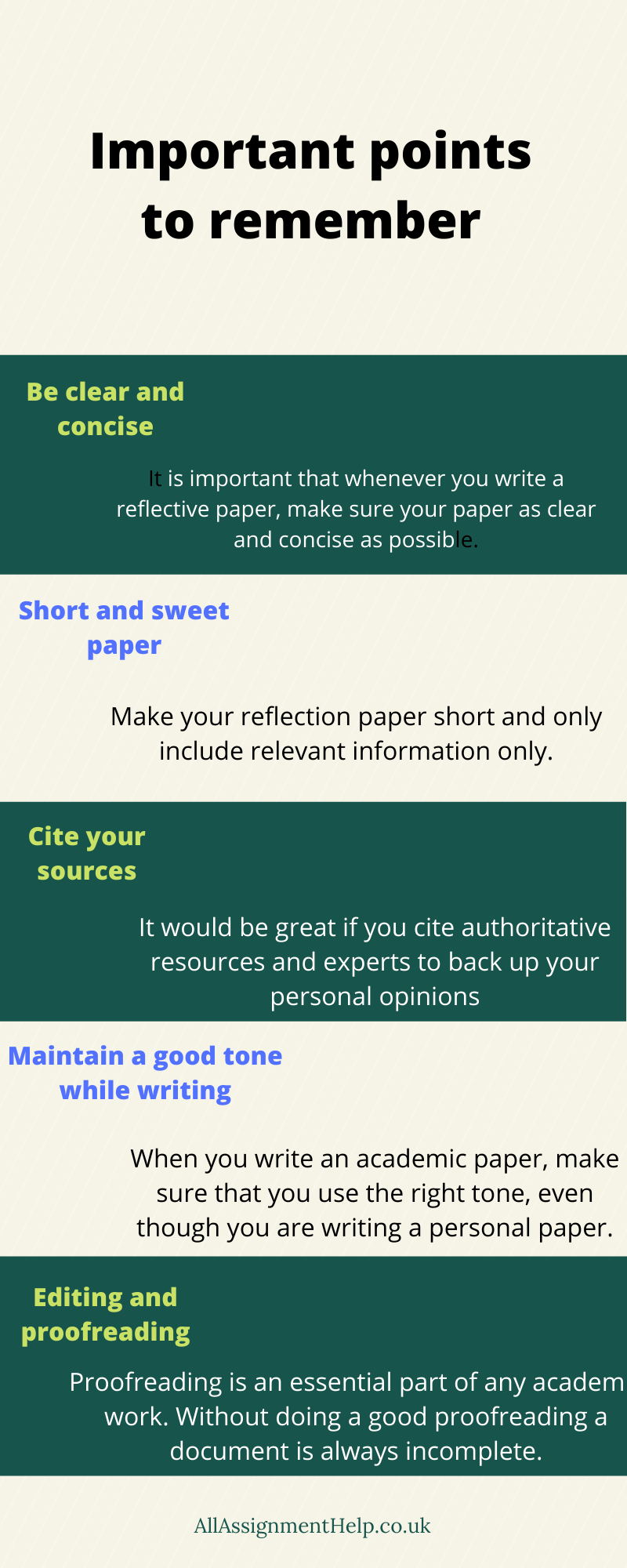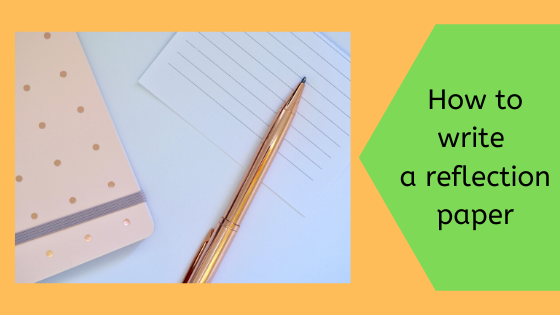As a student, you’ve probably heard the term reflection paper many times. But do you know the exact meaning of reflection paper? If no, then don’t worry. In this article, I’ll tell you about all the things related to reflection paper which will help you to get good marks in your paper.
What is a reflection paper?
A reflection paper is a type of academic essay, it’s less formal than other essays which you write in school. It is a form of personal response to situations, events or new information. It’s a chance to take on a more casual tone and adopt the first-person style. You have to understand this fact that you have to write your personal opinion in a reflection paper, but you must take care of back up this opinion with evidence and proof. You have to cite authoritative and genuine resources to back up what you believe.
How to choose a perfect topic and subject for your reflection paper?
Many times students have already assigned the topic. The topic is often a film, book, or lecture you’ve studied in class. Generally, students are asked to write about their personal experiences. But not every time you have assigned the topic, and in this situation, you can select your paper by yourself.
Spend plenty of time choosing your topic and then studying the subject to identify your main theme. And then the theme you choose is the building block for the rest of your reflective essay.
Types of reflection paper

There are generally three types of reflection paper that are given below:
Professional reflection paper
In a professional reflection paper, you have to analyze your professional behaviour, particularly common among the teachers and social workers.
Educational reflection paper
It is written as a response to a film, book, or lecture viewed in an academic setting to measure what students learned.
Personal reflection paper
In a personal reflection paper, you have a technique to explore your feelings, ideas and thoughts on a personal subject or topic.
Brainstorming and Outline of reflection paper
Taking good notes is an essential and good part of writing an effective reflection paper. You can write your notes in Onenote app. It helps you to get your thoughts in order. Making a good outline is an important part. Start writing the sentences that are related to your main theme. And then jot down all the main ideas and your thoughts that are related to the theme. You can also do brainstorming of your paper by using charts, diagrams and lists.
The reason behind doing brainstorming is to make a rough outline that you can use it later when you do the writing part.
Structure of a reflection paper
To create a good reflective paper, you have to follow a good structure. The basic structure is given below:
Create a strong introduction
It is important that you should create a good introduction for your reflective paper. Make sure you make an eye-catching introduction that states how the subject relates to you. A good introduction will help you to get good marks in your paper.
Focus on a thesis
You have to write a thesis in your introduction in which you have to explain your expectations met or not met.
Main Body of reflection paper
In your main body, you have to write the whole details about your reflection paper. Give the details that how the subject met or didn’t meet your expectations and why.
Wrap-up with conclusion
The conclusion is important as it helps to summarize your thoughts and feelings on the subject. You can write two or three sentences in your conclusion.
How to write a critical reflection paper?
Critical reflection is not an easy task. It is a culmination of your studying process. Critical reflection paper result in intensive thinking that presents your abilities to observe, evaluate, question and apply personal experiences to the interpretation of the subject. You can write step by step about a critical reflection paper:
- You can describe an experience, provide some details in an event.
- Examine the experience, integrate the academic and personal contexts.
- After that, provide in-depth analysis of those experiences.
- Once you have done the analysis, tell your readers what you’ve learned int he analysis.
- Tell the readers how analyzed subject will be useful in your future.
How to write a reflection journal?
A reflection journal is a perfect place to jot down some of life’s biggest thoughts. You can write about your positive or negative life experience, that what you’ve learned from that experience.
Writing a well-written can be an important tool. To get the most benefits, you need benefits. It would be better if you write the paper as soon as possible after the event. So, in this way, the details will still be fresh in your mind, and that will help you later in the analysis.
How to write a personal reflection?
A personal reflection is a response to a particular stimulus. Often it will be written by an individual to explore personal events, experiences and feelings. A personal reflection is generally an opportunity to consider all the thoughts from a fresh perspective. It would also be important to write a personal reflection within an academic context.
The best way to write a personal reflection paper is to remember that it is a personal response which is made by you. Therefore, it should be different from others. It is generally influenced by the following things, such as:
- Your beliefs, opinions and experiences.
- Your emotional state at a given moment
- Similarities and dissimilarities to your own life.
- Sympathy or empathy with characters
Generally, students are assigned personal reflective essays. If you are also trying to come up with a genuine yet striking one, but it is being tough, stay calm. Writing your own thoughts for an academic essay can be tricky sometimes. Thus, if you have too many unsuccessful attempts, then custom essay writing help is also an option.
Examples of reflective paper writing
There are examples of reflective writing assignments which are given below, go through it:
Journal writing
Journal writing requires you to write weekly entries throughout the semester. It may also require you to base your reflection on course content.
Learning diary
Learning diary is similar to journal writing but in learning diary, it may require group participation. This diary then helps you to share your thoughts with others.
Logbook
Logbook writing often used in science. It is basically based on experimental work. A log gives you an accurate record of a process and also helps you to reflect on past actions and helps you to make better decisions for future actions.
Reflective note
A reflective note is often used in law. The main aim of reflective note encourages you to think about your personal reaction to a legal issue which is raised in a course.
Peer review
Peer review main aim is to usually involves the students showing their work to other people for getting the feedback.
Important points to remember

There is always a unique style of everybody’s to write a reflective paper. So, here are a few tips everyone should incorporate that are given below:
Be clear and concise
It is important that whenever you write a reflective paper, make sure your paper as clear and concise as possible. Clarity is important for the students. Also, use a strong thesis for your paper.
Short and sweet reflective paper
Make your reflection paper short and only include relevant information only. A short paper is easy to read and also it is more attractive to the students.
Cite your sources
It would be great if you cite authoritative resources and experts to back up your personal opinions.
Maintain a good tone while writing
When you write an academic paper, make sure that you use the right tone, even though you are writing a personal paper.
Editing and proofreading
After you have done your work, the next thing is to do proofreading. You have to eliminate all the grammatical and spelling errors from your content to make it more presentable to your audience. Proofreading is an essential part of any academic work. Without doing a good proofreading a document is always incomplete.
To get more ideas on how to write a reflective paper, take help from several study archives/ resources such as Scribd, google scholars.
So now you understand that reflective writing is your response to experiences, events, opinions and new information. It is a way of exploring your learning, a chance to develop and reinforce writing skills.
I hope this article helped you. If you have any suggestions or feedback regarding the blog, you can write to our AllAssignmentHelp.co.uk experts in the comment section below.
Thank you for reading!
